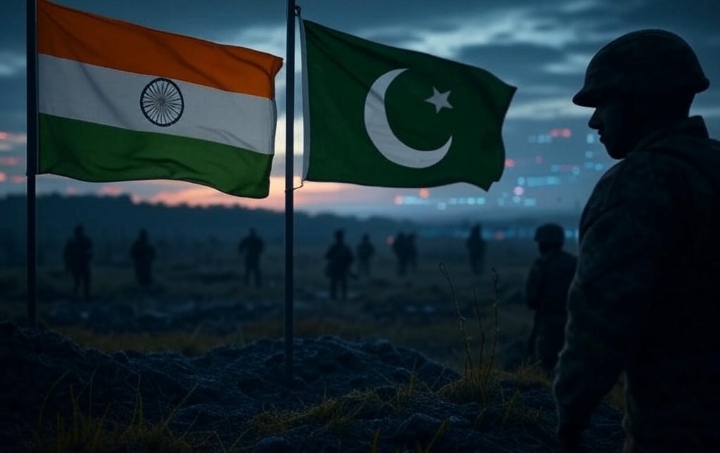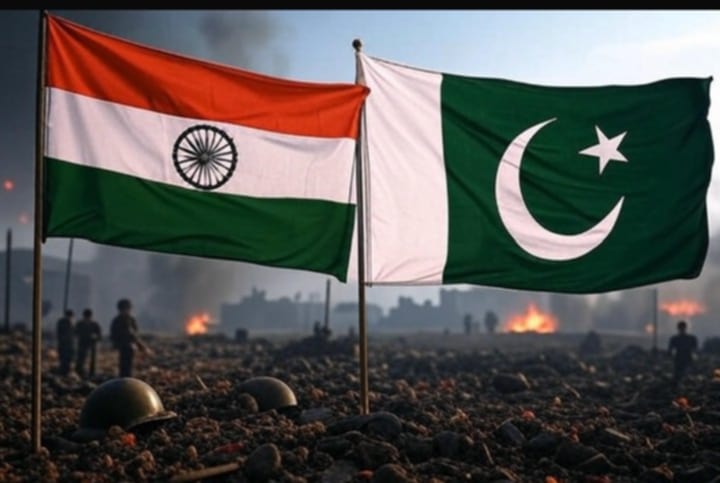India Pakistan Clashes Cyber Attacks and Online Risks. When India Pakistan face political or military clashes, the tension doesn’t stay on the ground—it spills into the digital world. Hackers, hacktivists, and even state-backed groups target everyday people, businesses, and government systems. Their goals? To spread panic, steal data, or push propaganda. Emotions run high during these clashes, and cybercriminals exploit that fear to trick you into clicking malicious links or sharing sensitive info.
For example, after the 2019 Pulwama attack, Indian cybersecurity agencies reported a 300% surge in phishing emails. Pakistani websites, too, faced waves of DDoS attacks. These conflicts create a perfect opportunity for hackers to strike, and ordinary internet users like you often end up in the crossfire.
In This Article

Top 4 Cyber Threats to Watch Out For: India Pakistan
Let’s get real—cyber threats during India Pakistan clashes aren’t just “tech issues.” They’re designed to mess with your life. Here’s what you’re up against:
Phishing Scams (Fake Alerts!)
You might get emails or messages claiming to be “urgent updates” about the conflict. These often contain links that steal your passwords, bank details, or install spyware.
DDoS Attacks (Website Crashes)
Hackers flood news sites or government portals with fake traffic, crashing them. This creates chaos, spreads misinformation, or hides other attacks happening behind the scenes.
Malware Disguised as “Patriotic” Content
That “Support Our Soldiers” app or viral conflict-related video? It could secretly install malware on your device, giving hackers access to your photos, messages, or location.
Social Media Fake News
Fake accounts spread extreme opinions, fake videos, or hate speech to deepen divisions. Even harmless-looking posts might hide links to scam websites.

How to Protect Yourself From Cyber Attacks : 5 Simple Steps: India Pakistan
You don’t need to be a tech genius to stay safe. Just follow these steps:
Step 1: Don’t Trust “Urgent” Messages
Got a WhatsApp forward about the conflict? Pause. Check trusted news sites like BBC or NDTV before sharing. Hackers want you to react fast—so slow down.
Step 2: Avoid Clicking Suspicious Links
Hover over links to see the actual URL. If it looks weird (like “GovermentIndía.com”), close the message. When in doubt, type the official website address yourself.
Step 3: Use Strong, Unique Passwords
Reusing passwords is like using one key for your house, car, and bank locker. If hackers crack one, they get everything. Try a password manager like Bitwarden to stay organized.
Step 4: Turn On Two-Factor Authentication (2FA)
Add an extra lock to your accounts. Even if hackers steal your password, they’ll need a code sent to your phone to break in.
Step 5: Update Your Devices ASAP
Old software has security holes hackers love. Update your phone, laptop, and apps regularly—those “annoying” update notifications could save you from a cyber disaster.

Real-Life Examples of Cyber Attacks
- After the 2019 Balakot airstrikes, Indian government websites faced over 40,000 hacking attempts in a single week.
- In 2020, hackers leaked sensitive data from the Karachi Stock Exchange, aiming to destabilize Pakistan’s economy.
- Fake charity websites stole millions during Pakistan’s 2022 floods by pretending to collect donations for victims.
Are Governments Doing Enough to Stop These Cyber Attacks?
India and Pakistan both have cybersecurity teams like CERT-In and PNACERT. They block malicious sites, issue public alerts, and fight hackers. But here’s the problem: cybercriminals evolve faster than defenses.
The Big Gaps in Cybersecurity
- Lack of Awareness: Many people still don’t know basics like spotting phishing emails.
- No Cross-Border Cooperation: India and Pakistan rarely share threat data, letting hackers exploit the rivalry.
Your Action Plan: Stay Safe Right Now
- Use a VPN: Hide your IP address to avoid being tracked or targeted.
- Backup Your Data: Save photos and documents on an external drive or cloud storage (Google Drive, iCloud).
- Educate Your Family: Teach kids and older relatives how to spot scams—they’re easy targets.

Final Thoughts: Don’t Let Hackers Win
India-Pakistan clashes will come and go, but cyber threats are here to stay. Stay calm, stay skeptical, and share this guide with friends. Together, we can build a safer internet for everyone.
Remember: Your online safety starts with you. Arm yourself with knowledge before the next clash heats up!
FAQs: Cyber Attacks During India Pakistan Clashes
Q1: Why do cyber attacks increase during India-Pakistan conflicts?
Tensions create chaos, and hackers exploit heightened emotions. People are more likely to click on fake news, patriotic apps, or “urgent” alerts, making it easier for attackers to spread malware or steal data.
Q2: How can I spot a phishing email or message?
Look for typos, suspicious links (e.g., “GovermentIndía.com”), or urgent demands for personal info. Verify claims on trusted news sites before clicking anything.
Q3: Are smartphones safe during these clashes?
Nope! Hackers target phones too. Avoid downloading unofficial “patriotic” apps or videos. Use antivirus software and update your phone’s OS regularly.
Q4: What should I do if I accidentally clicked a suspicious link?
Disconnect from the internet immediately. Run a malware scan, change your passwords, and enable 2FA on critical accounts (email, banking).
Q5: Can social media posts really harm me?
Yes! Fake accounts spread malware links or hate speech. Avoid sharing unverified posts—even if they look harmless.
Q6: How do DDoS attacks affect ordinary people?
They crash websites (e.g., news portals, banking sites), causing panic or hiding real attacks. Stick to verified platforms for updates.
Q7: Are governments doing enough to stop these cyber threats?
Agencies like CERT-In (India) and PNACERT (Pakistan) work to block threats, but hackers evolve fast. Your vigilance is the first line of defense.
Q8: What’s the #1 tip to stay safe online during conflicts?
Stay skeptical. Double-check everything—links, messages, apps—before trusting them. Slow down, think, then act.
Q9: Can VPNs really protect me?
Yes! A VPN hides your IP address, making it harder for hackers to target you. Use trusted providers like NordVPN or Surfshark.
Q10: How do I teach older family members to avoid scams?
Keep it simple:
- “Don’t click links in messages.”
- “Call me if you see anything about the conflict online.”
- “Stick to WhatsApp chats with known contacts.”

